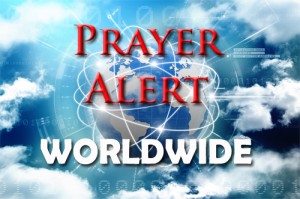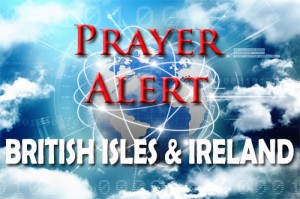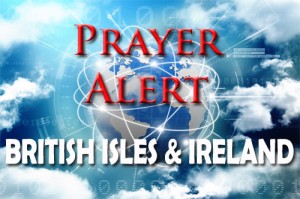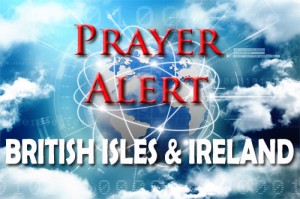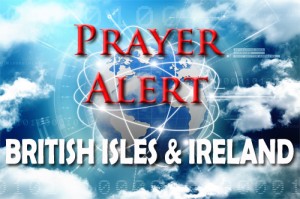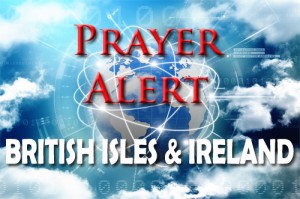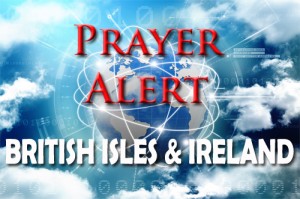
David Fletcher
David Fletcher is Prayer Alert’s Editor.
He is part of a voluntary team who research, proof-read and publish Prayer Alert each week.
If you would like to make a donation towards our running costs, please click here.
The 2017 Global Leadership Summit (GLS) is a series of two-day leadership training events in October, expected to be attended by 13,000 SA leaders. A hallmark of the GLS has been its ability to deliver a unique blend of vision, inspiration and practical skills that attendees can immediately apply. There are 21 events in 18 cities and towns. This annual summit was founded 22 years ago out of a vision in the heart of Bill Hybels of Willow Creek Church in Chicago to bring the best leadership training to the local church. It has just kept on growing, consistently inspiring church, ministry, business and organisation leaders. During 2017 it will reach 1,375 venues in 128 countries, teaching civility and respect, building resilience, increasing people's creativity and uniqueness, and reinventing performance management and fearless leadership.
The USA and the world are still reeling from the horrific shooting that killed 59 people and wounded over 500 more on 1 October in Las Vegas. While we are all still grappling with this senseless act of violence and ‘pure evil,’ as President Trump termed it, there are also stories of courage and heroism which showcase the best aspects of the human spirit. Many people acted selflessly during the shooting. One couple attending the concert fled from the scene in their pickup truck, but returned to help transport the wounded to hospitals. Another story emerged of a husband who gave his life for his wife by shielding her with his body as bullets rained down on the crowd. Two friends at the concert heard the shots and hid under some tables, then a complete stranger came and shielded them.
Turkey’s president has now confirmed publicly that an American pastor jailed for the past twelve months is being held as a political hostage. In a speech at his presidential palace, Recep Tayyip Erdoğan openly called on the United States to exchange pastor Andrew Brunson for Muslim cleric Fethullah Gülen, a Turkish citizen living in exile in the US since 1999 who is accused of masterminding last year’s failed coup via his international network of followers.
Movement Day UK will bring together believers from across the country to seek God together, to dialogue and to explore strategic ways in which we can pursue the transformation of our places, in all areas of society. An open prayer event involving national leaders will also meet to pray for the unity of the Body of Christ and the nation.
(Sarah Haynes, Movement Day UK)
The PM’s keynote speech at the Conservative Party conference was marred by a series of misfortunes: an incessant cough, interruptions by a prankster, and problems with the backdrop. She valiantly ploughed on with a speech designed to shift the focus from Brexit infighting to domestic policy on energy bills and council housing, but the accident-prone presentation made some people question how long she could carry on. Newspaper headlines made dismal reading the next day, with words like ‘ordeal, shambles, tragic, disaster’ on the front pages. Pray for God to give the Government a united positive vision for the future, and help the nation to recognise the vision as possible. Pray for the media to focus on the trustworthy character that those who know Mrs May give her credit for; may they focus on the positive words spoken by our leaders. Ask God to repair all that is broken in the Westminster community, lifting them out of a place of fear and disunity.
Northern Ireland secretary James Brokenshire has made a fresh appeal for political parties to restore the devolved government at Stormont. At the Tory conference he said that while the DUP and the Tories were separate parties, they were working together at Westminster, ‘standing firm against Jeremy Corbyn’. He promised the Government would ‘provide the necessary political stability and governance’ if no deal is reached, including setting a budget for the province later this month. In the past, he said, the political parties had resolved issues and displayed the leadership to create stability. ‘So my message to you is: now is the time to reach agreement. Now is the time to look beyond the issues that divide you. Show the resolve you have demonstrated in the past.’
Conservative Anglican church group GAFCON has said some Primates may walk out of the Anglican Communion Primates' meeting, over the issue of same-sex marriage. The Scottish Episcopal Church will be asked to repent for its decision to let clergy conduct same-sex weddings last June. The Archbishops of Nigeria, Rwanda and Uganda refused to attend a recent Anglican Primates' meeting over what they deem to be a weak stance in the Church on the issue of sexuality. Meanwhile on 5 October Justin Welby said that a ban on Scottish Anglicans taking part in some votes and holding certain offices ‘will be followed through’, after a meeting where anger and disappointment were expressed. The ban would involve exclusion from debate on doctrine and from chairing Anglican Communion committees. Archbishop Welby said that no vote was taken against the Scottish Anglicans by the Primates, but there was a ‘consensus’.
The senior council of the Royal College of Obstetricians and Gynaecologists has voted for the decriminalisation of abortion, despite protests that there should have been a members’ ballot on this. Decriminalising abortion would remove moral standards for abortion practice from national legislation, trivialise legitimate moral concerns, and portray abortion as morally neutral. It would no longer be possible to ban dangerous DIY and sex-discriminating abortions. There might be regulations, but without legislation what makes those regulations anywhere close to enforceable? If abortion is viewed merely as a form of contraception, that would promote sexual irresponsibility. Additionally, decriminalisation could see some doctors come under fire for refusing to carry out abortions, which would be a further injustice. It also would run contrary to the Hippocratic Oath, taken by all those entering the medical profession.
Christian Vision for Men (CVM) has welcomed a new campaign by the mental health organisation Time to Change, which urges men to support their friends if they suspect they're suffering from mental health issues. The 'In Your Corner' campaign asks men to be more open and supportive of their friends. A national survey of over 3,000 men found that 86% would feel comfortable supporting a friend who has a mental health problem. The research also highlighted that men who wouldn't feel comfortable in such circumstances hold these common beliefs: ‘I wouldn't know how to support them’ (58%); ‘I don't know anything or much about mental health, so wouldn't be much help’ (34%); ‘I'd probably say the wrong thing and make it worse’ (34%). CVM’s Jeremy Geake said that any form of connecting such as texting a friend or meeting for coffee is valuable in helping to tackle mental health issues.
A decision by the Scottish government to ban fracking has been welcomed by the Church of Scotland. Church leaders said the vast majority of congregations oppose this controversial practice. They have now called for more opportunities to exploit greener energy sources, like wind. Adrian Shaw, the Church of Scotland's climate change officer said the Church is against fracking ‘primarily because of a need to build a low carbon economy’, adding, ‘Continuing dependence on fossil fuels, coal, and gas delays a low-carbon economy.’ He also said that the Church believes in the potential for Scotland to be fully green. ‘Our resources for wind power, hydropower, and tidal power are enormous here.’

